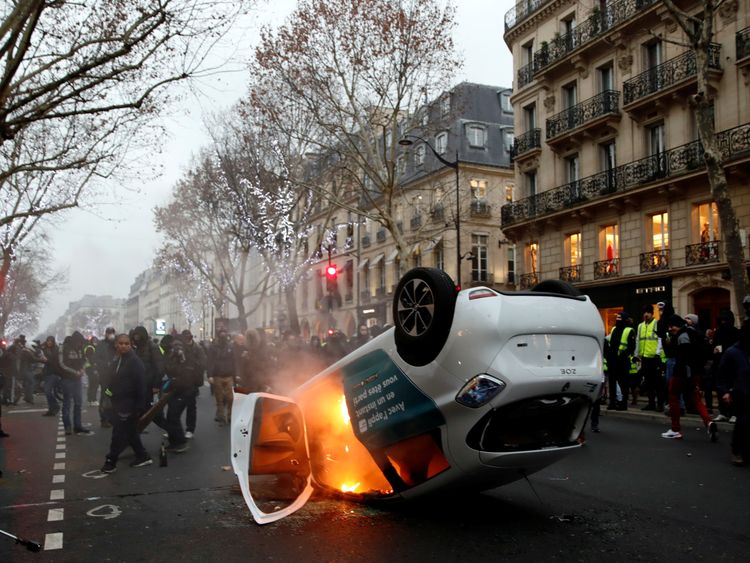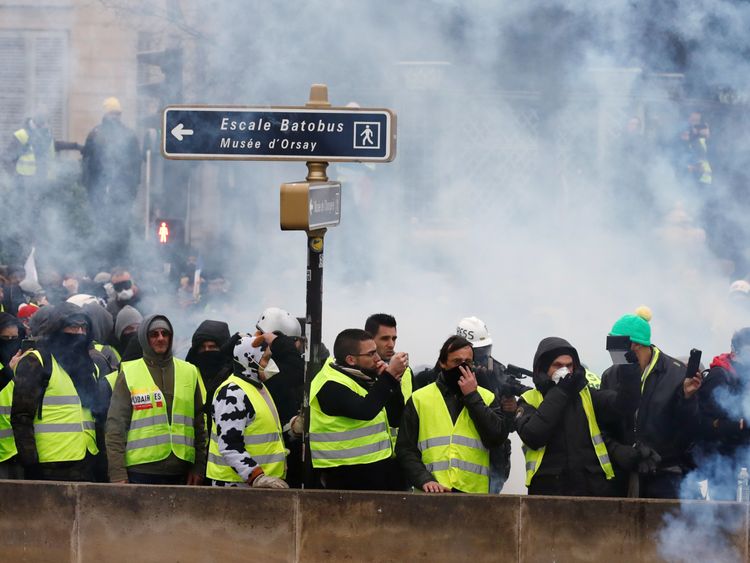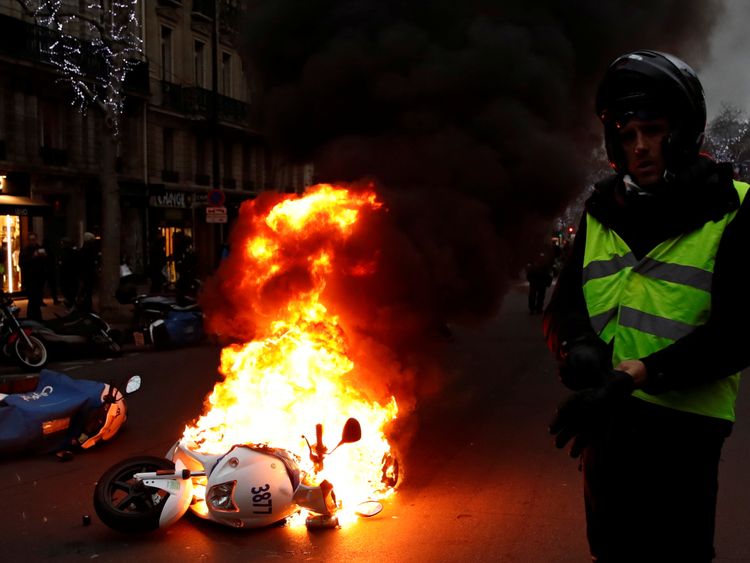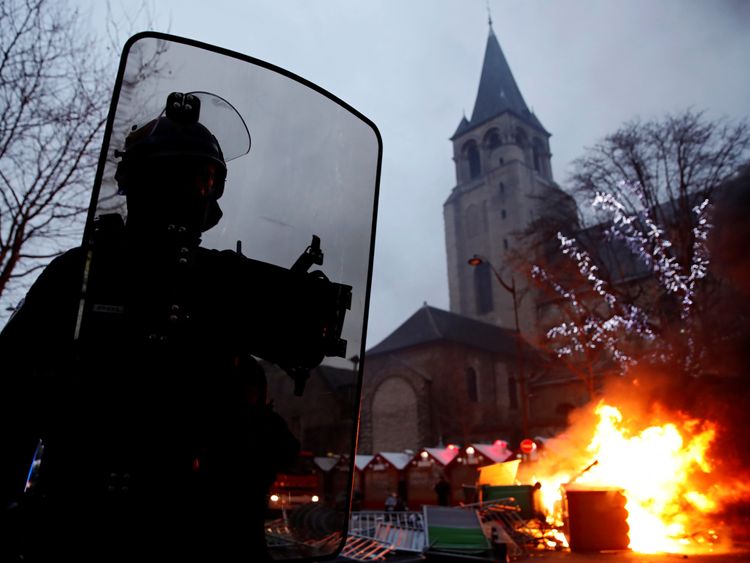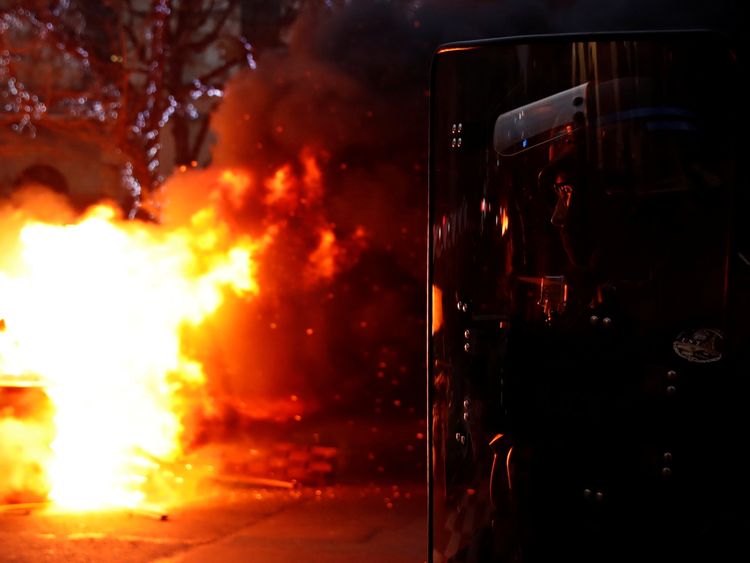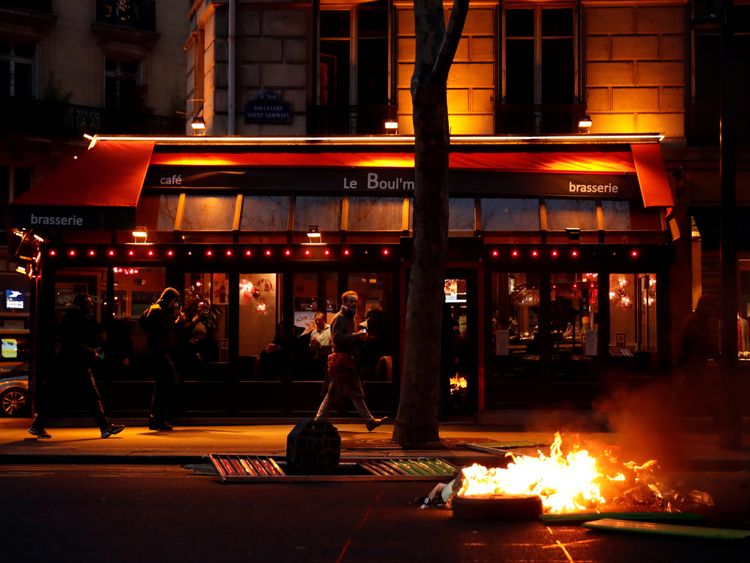Riot police moved in when the march deviated from an officially approved route.
A boat restaurant on the River Seine on the Left Bank was set ablaze and a number of vehicles were overturned and torched.
Police boats patrolled the river while beyond the Seine, motorcycles and a car were set on fire on the Boulevard Saint Germain.
Riot police and firefighters moved in as barricades mounted in the middle of the streets were also set alight.
The protests are against President Emmanuel Macron’s economic reforms which are seen as favouring the rich while squeezing the household income of ordinary people.
Earlier the atmosphere had been calm and numbers of demonstrators appeared to be down on previous marches.
But the violence erupted when protesters tried to cross the river on a pedestrian bridge not on the official route from City Hall to the National Assembly.
Police used clubs and tear gas and then held the bridge in a stand-off while violence broke out.
Clashes between police and protesters flared up in other cities across France, with tear gas fired in Bordeaux and in Rouen, Normandy.
There are no official figures on the number of protesters who turned out but one police estimate put the marchers in the capital at 3,500.
Protesters were looking to boost the yellow vest movement as numbers of participants had fallen since the first Saturday protest in mid-November.
The government has toughened its stance against protesters, saying they are agitators who want to topple Mr Macron.
On Wednesday, a key figure in the yellow vests movement was arrested for allegedly organising an illegal demonstration.
Government spokesman Benjamin Griveaux said before Saturday’s march that those still protesting “want insurrection”.
He called on the French to express their views during a “national debate” organised in the coming weeks in all regions rather than by taking to the streets.
The yellow vest campaign was launched following fuel tax hikes affecting working people who commute by car.
It expanded to encompass wide-range anger over Mr Macron’s economic policies, which ordinary people say favour the rich.
Mr Macron has already agreed a number of concessions, including scrapping fuel tax rises, tax cuts for pensioners and extra money for those on the minimum wage.
Source: Read Full Article
